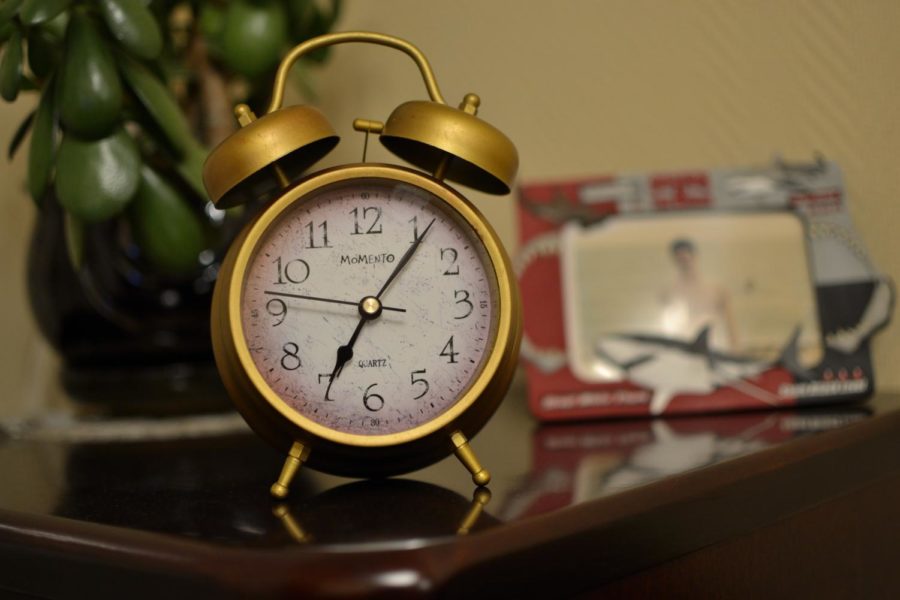Schafer: I’m hyperfocusing on… time blindness
March 23, 2021
Editor’s Note: This column is a part of a series called “I’m hyperfocusing on…”.
Time: it seems to be a fairly simple concept, but for some reason, I’ve always struggled with it. Multiple occurrences this week have brought this to my attention, and although I haven’t hyperfocused on this topic specifically, I now know that hyperfocusing can actually be exacerbated by being “time blind.”
Time blindness refers to the way certain neurodivergent brains — in my case, ADHD — fail to perceive the passage of time. I’ve never been good at punctuality, and my friends have even discussed my use of time as paradoxical. If I know the time that I need to do something, be somewhere or meet someone, I’m almost consistently 30 minutes late. My friends and family often tell me to “make sure you’re ready by X time.” When they do this, I’m often told 30 minutes before the actual time I need to be ready, obviously without my knowing. Funny enough, this happens to be the only times that I’m ready at the time I’m told, and I end up being ready 30 minutes earlier than actually necessary. There is no in between. However, this is only the tip of the iceberg.
I drew a bath for a bearded dragon in my care the other day, which was supposed to last 25 minutes. My partner came in the bathroom and offered to take over so I could work on homework for those 25 minutes. He set the timer and I left the bathroom. After what felt like 40 minutes, I went back to the bathroom and asked if he was planning on finishing up the lizard’s bath soon. Not even a full 10 minutes had passed, and yet I was convinced that the bath had already been too long.
Last night, I got home from Juggling and Unicycle Club, dropped off a friend at her home and started making dinner. I finished cooking at 11:57 p.m., which, in and of itself, is already a longer process than it should have been. After eating, I took a 12-minute quiz and went to bed. Doesn’t sound like a three-hour process, but I didn’t go into my bedroom to sleep until 2:59 a.m. Where did the rest of that time go?
Don’t get me wrong — I wear a watch, I set timers and I check the time every time I open my phone. My partner’s alarm clock is 11.5 minutes behind. My dorm clock is four minutes ahead. My car is a minute behind. I time my recurring walks from one point to another so I give myself enough walking time (from the door of my dorm room to my seat in Chemistry 163 last fall was almost exactly 11 minutes). I play music while showering and count the songs as I go, knowing how long each specific songs plays for. I check the time constantly, and yet I don’t have any accurate sense of time passing. I even count my drives across Iowa in counties instead of minutes or miles because driving through a county takes about 30 minutes (give or take), and I have no clue how long the drive is otherwise.
Even while writing this column (which I submitted later than intended because I lost track of time earlier today), I planned to take a break to go to the UDCC for dinner. I ended up spending more time writing than I meant to, and once I got to the dining hall, they had already closed for the night.
Although these are only a few examples of my struggles with time, trust me when I say it’s a never-ending battle within myself. Time blindness is difficult to work with and even harder for others to understand. In a world where punctuality can mean everything, the “late friend” isn’t necessarily a position of choice. We just can’t help it.







